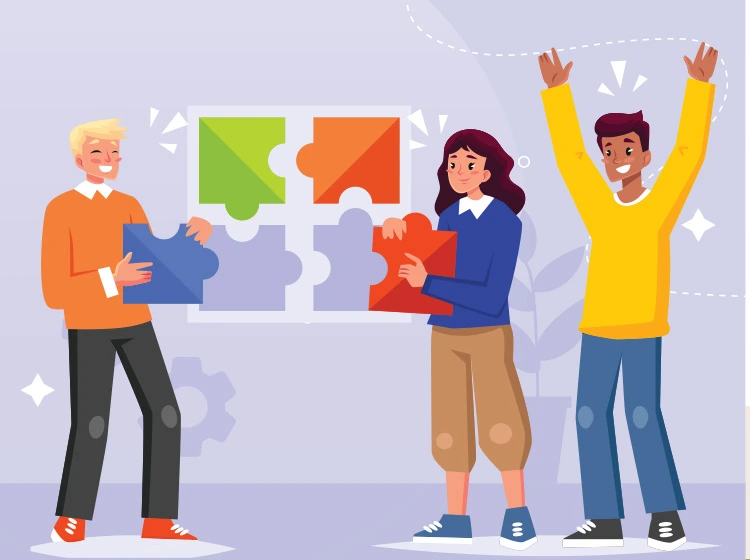There are four main generations active in the global workforce — Baby Boomers, Gen X, Gen Y (Millennials), and Gen Z. In some organizations, there are also Traditionalists still working, which are people born between 1922 and 1945. Not far in the future is Gen Alpha, the youngest and largest generation. Each generation has different expectations and motivations, and differing ideas about career growth, work-life balance, employer responsibilities and authority. Developing a collaborative workforce starts with finding common ground, and the proven success of utilizing team-building activities in bridging generational gaps can instill confidence and help develop a culture of continuous learning and collaboration when used effectively.
Building Collaboration on Common Ground and Not Stereotyping
Generational employees have differences, but are they as significant as some believe? Diane Belcher, Vice President, Strategy Enablement at Harvard Business Publishing (HBP), says there are differences but also believes some things considered “differences” are not in reality. For example, the focus on Millennials needing purpose-driven work is true, but the reality is that everyone wants to derive some meaning from daily work. Phyllis Weiss Haserot, president of Practice Development Counsel, reminds employers there are no hard and fast rules about generations and to not stereotype, as all generations share a desire for respect, meaningful work, growth opportunities, professional and career development, flexibility, purpose and impact, and financial rewards reflecting work contributions.” Successful team-building activities to develop and strengthen collaboration begin on a foundation of commonality. When Tata Consultancy Services (TCS) was recognized in Europe and globally as a 2024 Top Employer by the Top Employers Institute, they credited collaboration as a success factor. HR Head, TCS Europe Rajeev Das said, “This accolade is a reflection of the collective dedication and collaborative spirit of our incredible teams.”
Meeting the Needs of the Blended Workforce
Attending offsite team-building retreats has been popular for many years. During the pandemic, companies had to get more creative to reduce costs and accommodate the remote and hybrid workforce. Thus, these days, many team-building activities utilize technology out of necessity. However, retreats, intergenerational lunch meetings, and volunteering activities are still important when they fit the workplace structure. Volunteering activities where team members from all generations can work toward a common goal are particularly effective in today’s workforce. It appeals to all people who want to contribute to society or the environment and promotes a sense of shared purpose outside the workplace.
Login Here

